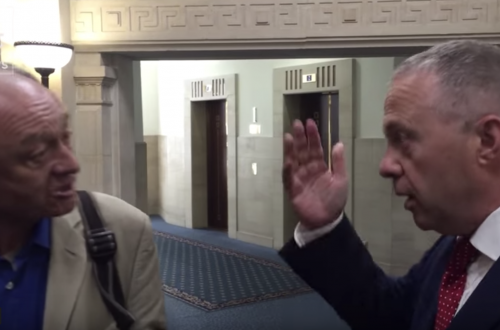There has been considerable debate over whether Hilary Mantel’s recent article on ‘Royal Bodies’ could be seen as an attack on, or at least a snark at, Kate Middleton. Certainly the piece is extremely critical of the way in which the royal family is consumed and fetishized. Yet if Hilary Mantel intended to put some ironic distance between her own voice and this disdainful dissection, she doesn’t fully succeed:
Kate seems to have been selected for her role of princess because she was irreproachable: as painfully thin as anyone could wish, without quirks, without oddities, without the risk of the emergence of character. She appears precision-made, machine-made, so different from Diana whose human awkwardness and emotional incontinence showed in her every gesture. Diana was capable of transforming herself from galumphing schoolgirl to ice queen, from wraith to Amazon. Kate seems capable of going from perfect bride to perfect mother, with no messy deviation.
Although you can pick out words – ‘seems’, ‘appears’, ‘seems’ – which could be signals of irony – the overall effect is (or seems) to be dismissive, contrasting the engagingly chaotic Diana with the more phlegmatic Kate. It was in many ways a rich and fascinating article – yet I’m not sure why people are reacting so indignantly to the suggestion that Hilary Mantel may have been a little unfair.
Here’s a sneer from the Guardian:
That’s the core of it, especially given the context, a London Review of Books-organised speech to an LRB sort of crowd, it probably didn’t even occur to Mantel there would be anyone listening who couldn’t distinguish between the actor and the role. If the tabloids are outraged, well, maybe they shouldn’t have been earwigging while the grown-ups were talking.
Anxiety and whataboutery characterise the Telegraph’s defence of Mantel:
Is it so controversial to suggest that the Duchess has been “selected for her role of princess because she was … without quirks … without the risk of the emergence of character”? It seems hypocritical to jump on Mantel for articulating why the Royal family might live in fear of another Diana, with her “human awkwardness and emotional incontinence”. It also confirms our obsession with visually appealing, uncontroversial Kate Middleton that no one seems to have noticed Mantel also describes the Queen as “a thing that existed only to be looked at”.
And here is Sam Leith, again in the Guardian:
This is the problem at the root of poor old Hilary Mantel‘s clobbering yesterday by self-styled defenders of the Duchess of Cambridge including (woe!) our dim-witted balloon-on-a-stick of a prime minister. Mantel’s long lecture about Kate, and the way we look at her, was full of irony.
I don’t mean irony in its vulgar meaning of “sarcasm”, or the still more vulgar meaning of “saying something you don’t really mean”: but in the sense of inhabiting more than one position at once – of being able to observe something, but also to stand back and think about the way you are observing it, about the off-the-peg narratives and received ideas that shape your perceptions.
Clearly it is perfectly possible to interpret Mantel’s words in this complexly ironic way. But it doesn’t surprise me that some people read it differently.


